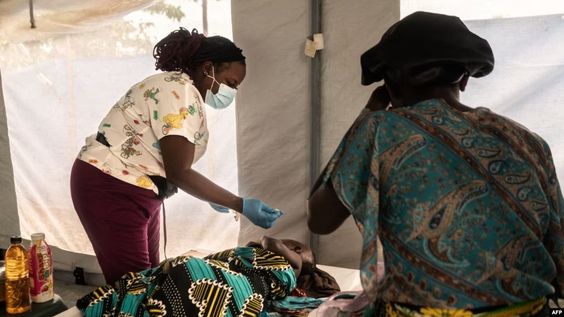Health
African Ministers Discuss Cholera Outbreaks in Malawi

Africa has been urged by the World Health Organization to intensify efforts to combat cholera, which killed more than 3,000 people in 12 African nations in the last year, with more than half of the victims dying in Malawi’s record epidemic. Last week, ministers from 14 African nations attended a two-day emergency conference on cholera organised by the international health organisation and the African Centers for Disease Control and Prevention.
The two-day conference came to a close on Friday with a demand for nations to adopt a comprehensive strategy for addressing population-level water, sanitation, and health challenges.
As a conclusion, it was said that more dedication was required to surveillance and prevention in order to get rid of the fatal cholera bacteria, which is spread by contaminated water.
The panellists also came to the conclusion that African nations must begin developing their own cholera vaccine.
Despite prior vows to eradicate the illness, cholera outbreaks still occur throughout the continent, according to Dr. Ambrose Talisuna, WHO’s regional advisor for health security in Africa.
As stated by the Regional Framework for Africa in 2018, “they committed themselves, but we are trailing and the milestones are lagging,” Talisuna claimed. “So, we truly want to revive cholera prevention and control in Africa in a sustainable manner.”
According to Talisuna, there are now cholera outbreaks in 12 African nations, with more than 130,000 cases overall, including more than 51,000 in Malawi.
READ ALSO: Hamburg shooting leaves many dead
We don’t know how many nations will have cholera by the end of the year, he added, adding that this is simply too much. The greatest epidemic, however, is now occurring in Malawi and is linked to both cross-border travel and concerns with climate change.
The deadliest cholera epidemic Malawi has seen in decades has claimed more than half of the disease’s victims throughout Africa.
Saulos Chilima, vice president of Malawi, said the delegates on Friday that a cholera prevention campaign the Malawian government started last month is primarily to blame for the current decline in cases.
The mortality rate in the nation has decreased from 3.3% in August to 1.8% as of right now, although it is still higher than the WHO goal rate of 1%.
Progress has been achieved, according to Khumbize Kandodo Chiponda, Malawi’s minister of health.
The numbers have considerably decreased, according to Chiponda. “About three or two weeks ago, we were getting 700 or 800 cases every day. Yet there are currently around 200, and occasionally 300. The statistics have decreased, even for cholera fatalities.
Health rights activist Maziko Matemba told VOA that the WHO and the Africa CDC’s participation in the battle against cholera might aid the nation in eliminating other prevalent illnesses as well.
“We hope that additional research and surveillance will be conducted in Africa to help and promote the eradication of some of these illnesses, which are naturally avoidable,” Matemba added. Yet it will also raise awareness among nations to allocate more funds to health in order to eradicate some of these naturally curable ailments.
There is a historical precedence for cholera eradication: Europe, according to Dr. Merawi Aragaw, director of the Africa Centers for Disease Control and Prevention’s emergency readiness and response section. He asserted that governments in Africa may halt epidemics by adopting a coordinated, teamwork-based, and multi-sector strategy similar to what Europe accomplished 150 years ago to nearly eradicate the waterborne illness on that continent.
According to Aragaw, the strategy will focus on enhancing Africa’s water and sanitation infrastructure.
